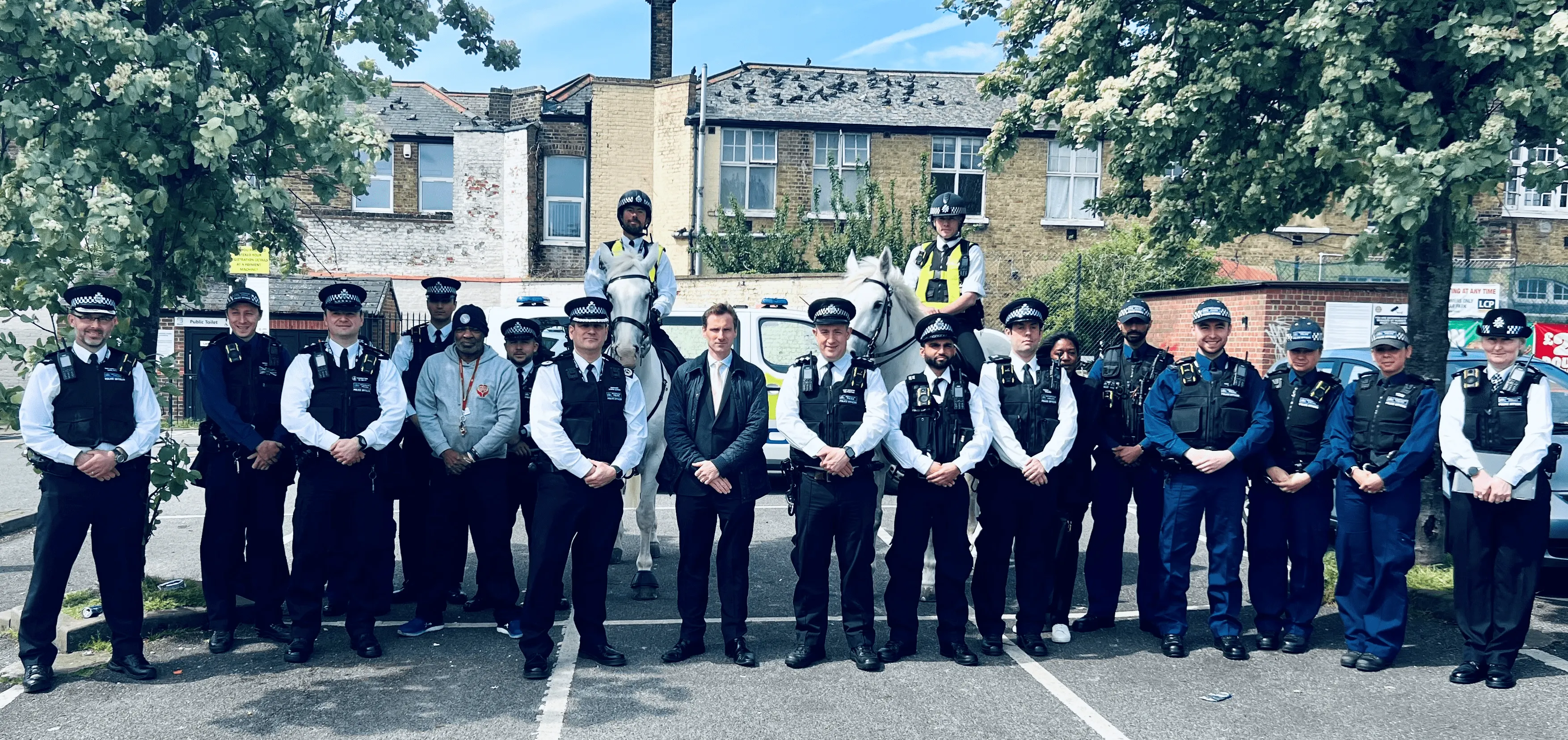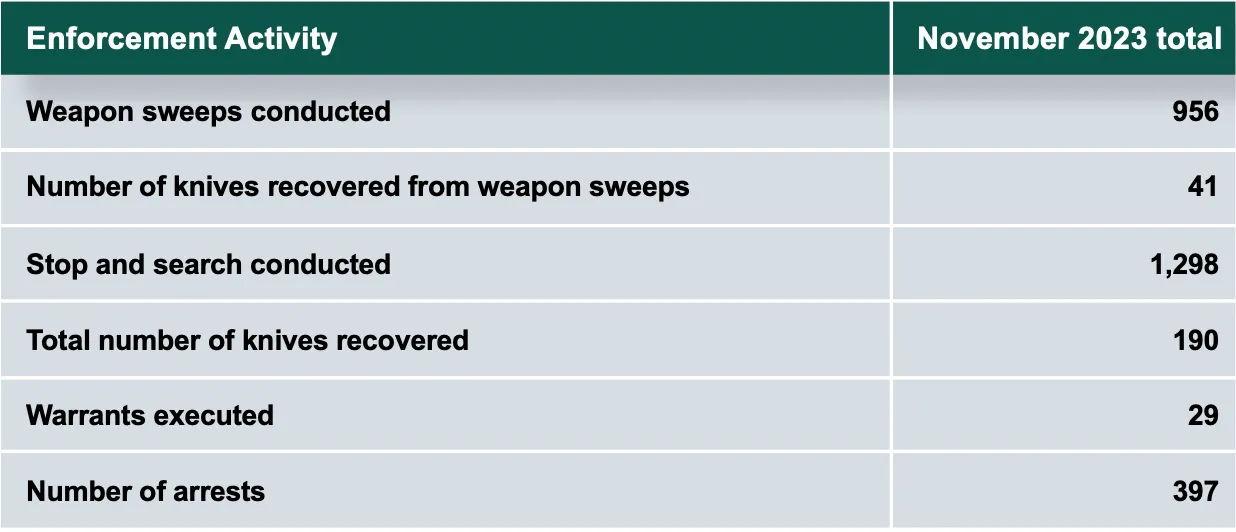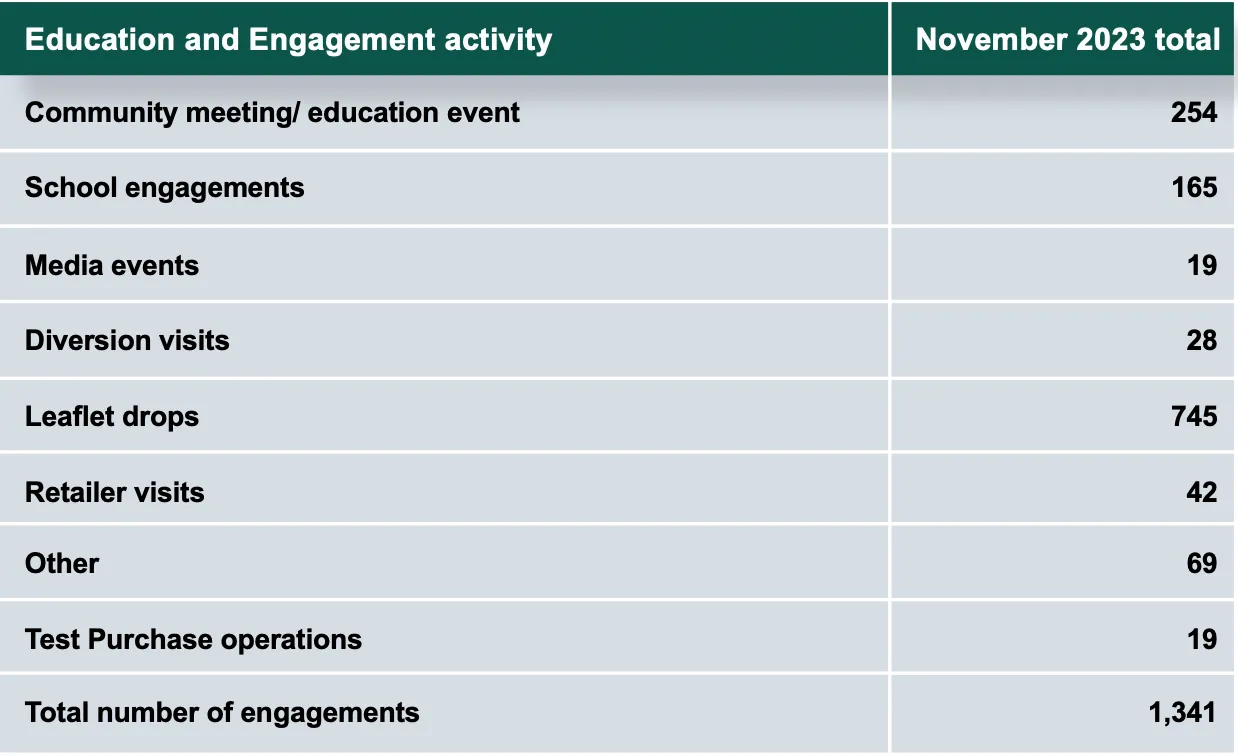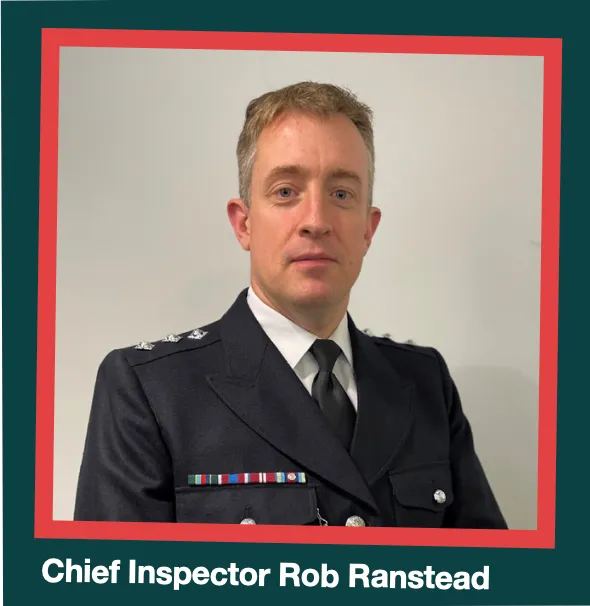
I have led Operation SCEPTRE for the Metropolitan Police Service for the last two years. This police operation is co-ordinated by the National Police Chiefs’ Council across all 43 forces in England and Wales and the British Transport Police in a week of intensified action. Running twice annually the Met works closely with our partners to enhance enforcement, engagement, and education activity in relation to knife crime.
Being an operational police officer for the last 20 years I have seen first-hand the consequences of knife crime on the streets of the capital, and the trauma this causes for individual’s families and the wider community. I will always remember the first time I delivered a death message to the loved ones of someone that had died due to knife crime. I will also always remember the first time someone pulled a knife on me. These experiences have most certainly shaped me, they have influenced how – and most crucially, why – I continue to police the capital.
Operation SCEPTRE weeks serve to intensify the focus on knife crime by doing more of what is business as usual for the Met. It is not lost on me that most people probably imagine that our activity is primarily focused on enforcement, and whilst these weeks do result in increased police patrols in hotspot areas and intelligence-led stop and searches, most importantly they provide an opportunity for us to engage with Londoners.
At times enforcement activity, and some of the tactics used, can be viewed as controversial. This can put us at odds with the communities that we seek to protect. However, with a more precise approach to the use of stop and search, with regular reviews, we can assure that we use these tactics effectively. Working together with partners and our communities, we carry out joint weapon sweeps across the capital. This does not only serve to remove dangerous weapons from open spaces but offers a great opportunity for building relationships and enhancing trust with the public.
My personal view is that it is too late when the police are called to a stabbing, in the sense that the tragic event has already occurred, and the damage has already been inflicted. Of course, crime has to be investigated and justice has to take its course, but it would be better to focus on prevention and ensure such tragedies do not occur in the first place. The focus must be on education and engagement to prevent the harm in the first place.
Sadly, young people are particularly vulnerable to knife crime. Due to this, our partnership with education providers is more important than ever in ensuring that the message is spread about the harm you can do to others, yourself, and the community if you carry a knife. Much of the important work that goes on in this space is about understanding the reasons why young people feel they need to carry a knife. This may stem from a self-defence and protection perception, but can also be anything from carrying a knife to use to intimidate people, or to use as part of other crimes, such as robbery. Following this understanding, we can demonstrate the consequences of carrying a knife with a view to influencing and persuading better choices, especially amongst young people.
As a police service we need to evolve. For that reason, last month’s Operation SCEPTRE saw a national focus on online knife retailers. This online space is challenging to police and provides access to a range of dangerous knives with such sellers offering, in some cases, limited or even non-existent age verification procedures. Current national trends show bulk online orders coming into online retailers with the weapons then being resold via other social media platforms. This is an area we are focusing on to deliver enforcement and engagement, to ensure that the same safeguards apply in the virtual space as they do in person.
Much of the work in this space goes unseen, and some of it will remain this way for obvious reasons, but part of Operation SCEPTRE involves working in partnership with two key agencies, the Border Force and the Prison Service.

The prison estate can at times be a dangerous environment for prisoners and staff alike. Following sentencing, habitual knife carriers do not stop carrying weapons inside prison. As a result, Operation WILSON takes place in the prison estate aimed at reducing knife crime in prison by targeting those carrying weapons and disrupting the supply of knives/bladed articles available to use. The operation brings together police and prison resources in a coordinated effort to tackle a rise in serious violence at individual prisons as well as supporting existing activity that involves crucial engagement and prevention work. Using enhanced capabilities and intelligence, packages coming into the country containing knifes and offensive weapons are intercepted. Working in partnership with other agencies, we can build up the intelligence picture, and take action ranging from simply knocking on a door and giving the intended recipient of the parcel advice, all the way through to more dynamic interventions such as obtaining a warrant.
The most recent Operation SCEPTRE took place between Monday 13 and Sunday 19 November 2023 and resulted in a range of synchronised activity across the Met, and the rest of the country. In London alone, this resulted in the following Enforcement, Education and Engagement activity.

Over the years Operation SCEPTRE has almost evolved into a brand of itself, and has become synonymous with knife crime. The activity the public sees during the operation in not confined to the week of coordinated action. Work to tackle knife crime remains ongoing. Every single day serious violence remains one of the Met’s priorities. Most importantly, we can’t do it alone. We need to work in partnership with parents, teachers, charities, and communities in order to reduce and stop knife crime occurring in the first place.

Chief Inspector Rob Ranstead
Metropolitan Police, Violent Crime Taskforce
